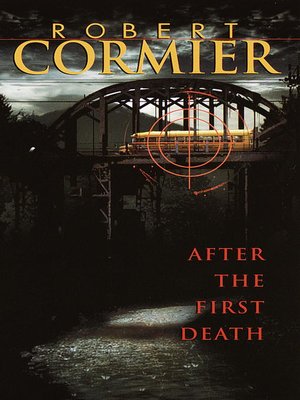This was one of the most satisfying books I've ever read. Let me start with how I found it.
As much as I love reading now, it was not always so. I was one of those high school students that learned the individual requirements of my teachers, studied how they graded, and devised a plan, unique to each class, to get an "A" while doing the least possible work. That included how to pass English without ever reading a novel. For all four years.
That is, with one exception.
My sophomore year, I remember reading a book about the hijacking of a bus full of school children. I don't actually remember if I read it or if the teacher read it to us, but I remember that I was riveted and absolutely loved the story (a secret I kept to myself, of course).
Years later I set out to find that book. My searches always came up empty. I couldn't remember the title or the author, and only a few vague scenes from the story itself. A few months ago, I decided to try my luck again (yes, 20 years later I still thought about the book and was seeking to find it). Google proved worthy this time around and I found the book. After reading the description of After the First Death I knew I had struck gold. I quickly bought it on Amazon for about 50 cents.
This week I got around to cracking it open. It took me a matter of hours to read it. After the first Death is gripping from the first page and compelling to the last word. It is the story of terrorists that hijack a bus full of elementary school children. But this is not the typical fairy tale that you'd see in a Disney-produced movie. It's not even the kind of story you'd see in a dark Hollywood movie. No, this story is real. Not "real" in the sense that it's based on a true story (it's not), but in that it feels real. There is nothing contrived, nothing extravagant for the sake of "good fiction." This novel gets you inside the head of terrorists in a way that, dare I say it, you can almost sympathize with their cause. Or if not, you at least understand where they're coming from, how they were trained and how they think.
I couldn't put this book down. I love a good book that I can't put down. This was not due to the endless action sequences (which there was not) or intense mystery (also not present), but because of the gripping reality of the subject covered. Cormier does not attempt to cater to the typical format of fiction in which the heroes always win. He tells a real-world story where anything can happen. It's hard to explain more without giving away some of the plot developments. But trust me, in Cormier's book anything is possible. We're even treated with somewhat of a twist at the end. It was a very gratifying twist. Very. As a matter of fact, I was about to chalk this up as only a "very good" read until the last 10 pages or so. Suddenly more of the previous story made sense, ends were tied, and the twist put a final gratifying touch to the whole experience of reading this book. "Very good" was now "Insanely amazing."
If I had to complain about one thing it would be Cormier's use of selective omniscience (writing term). In short, from paragraph to paragraph you're sometimes inside the terrorist's mind, and then inside the bus driver's mind, and then inside someone else's mind. That made for occasional sloppy story telling in my opinion. It wasn't so much of a distraction to make me dislike the book or really for it even to become too much of a bother, but it was an annoyance I had to put up with. That's writing 101--stay to the mind of one character at a time.
While it contains small print, it's only 220 pages long so it's a quick read. Some of you faster readers will read this in a single day. I will be seeking out more of Cormier's books after this. I can only hope his other fiction is half as good as this was.
My Rating: 5/5
My Recommendation: Do you have to ask? Get thee to Amazon and buy this book immediately!
Tuesday, June 25, 2013
Subscribe to:
Posts (Atom)
